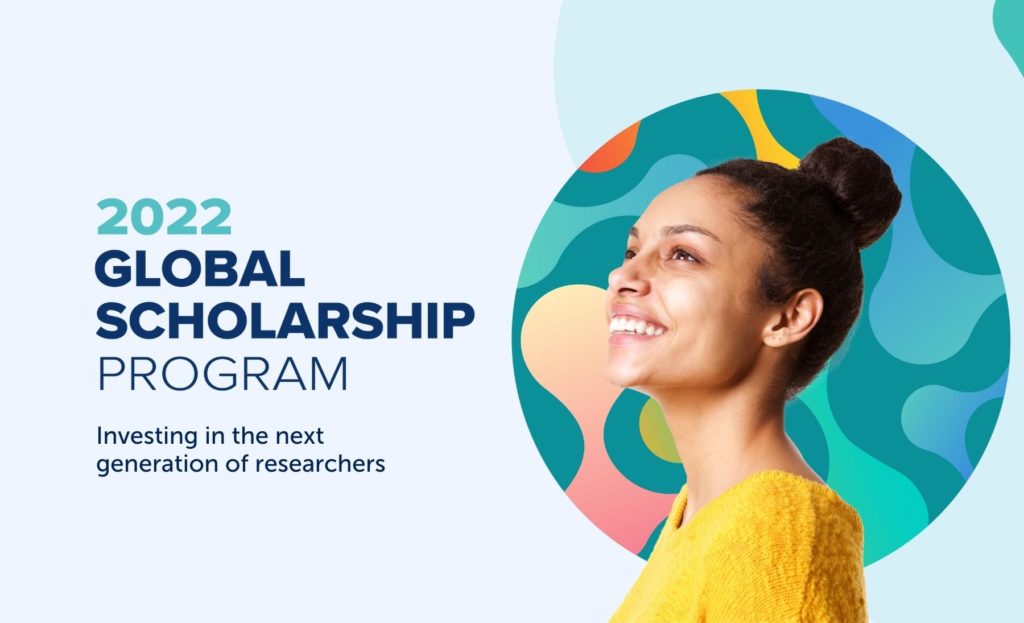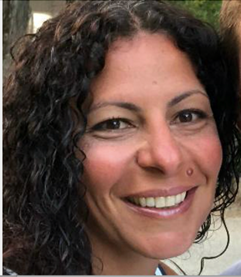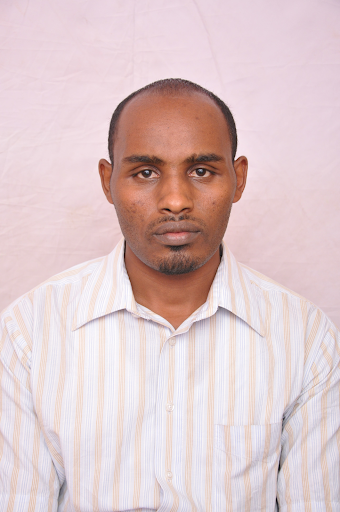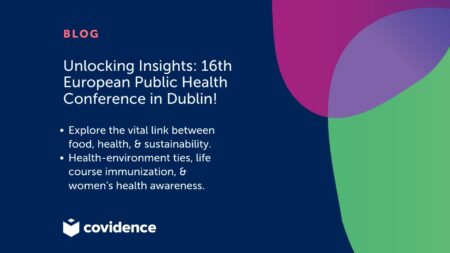Meet the Covidence Global Scholarship winners
In 2022 the Covidence Global Scholarship program supported 52 students whose work is making a difference to evidence-based practice and policy around the world. Meet the winners and find out about them and what the scholarship means for their research.

Covidence is on a mission to change the way the world creates and uses trustworthy knowledge. We also want to contribute to building opportunities and skills in our community by investing in the next generation of researchers.
In 2022 the Covidence Global Scholarship program supported 52 students whose work is making a different to evidence-based practice and policy around the world.
Annie Tan, Dina Idriss-Wheeler, and Dumessa Edessa each received an award of US$15,000. Here, they introduce themselves, their field of interest, and the impact the scholarship will have on their work.
Annie Tan
I am a second-year PhD Candidate at Deakin University and the Burnet Institute in Melbourne, Australia. I am a mixed-methods public health researcher and passionate about maternal and child health.
The project that was awarded the scholarship is titled, ‘Women’s experiences of the indirect impacts of COVID-19 on maternal and perinatal health’. It is a qualitative evidence synthesis to describe and explore the indirect impacts of the COVID-19 pandemic on pregnant and postpartum women. This method was initially chosen as there was no published systematic review of the indirect impacts from the COVID-19 pandemic.
With the rapid output of research exploring the clinical outcomes of pregnant and postpartum women and newborns, many systematic reviews have already synthesized the impact of infection with SARS-CoV-2 during pregnancy, and to the unborn baby and newborn.
Women’s experiences
Publications about women’s experiences during the pandemic are also beginning to surface. Typically, these studies use qualitative methods to provide rich and detailed data about an individual’s experiences and an opportunity to compare and develop patterned meaning across a subset of the population.
We chose to conduct a synthesis of all published qualitative studies on women’s experiences during the pandemic to provide a cohesive and transparent documentation of the results.
Contexts and settings
This study will explore the impact of the rapid changes to maternity care services that were implemented as mandatory public health measures, on women’s antenatal and postnatal care experience. Our synthesis focuses on the impact on women from high-income countries only, to allow for similar contexts and settings to be compared, reviewed and recommendations for government and policy makers.
By synthesizing the experiences of women across the world, the findings will ultimately influence policy and practice, aiding future planning of emergency responses, and adapting services to ensure pregnant and postpartum women are always able to access high-quality care, no matter the circumstances.
Impact
This scholarship award has made a significant impact on my PhD journey by highlighting the wider importance of this study in improving maternal and perinatal health. My first taste of research was conducting a systematic review, and it really emphasised the importance of evidence synthesis and the contribution that a cohesive documentation of the current research could have on future research development. For my future endeavours, I would like to work towards applying the synthesis findings to policy and practice, either by advocating for policy change, or adapting practices to better suit the needs of pregnant and postpartum women in our new ‘COVID-normal’ world.

Dina Idriss-Wheeler
I am a PhD candidate in the Population Health Program at the University of Ottawa in Ontario, Canada. Using a social justice and human rights perspective, I am exploring the social, political, and economic factors impacting access to health services for vulnerable populations (i.e. women, racialised communities).
Intimate partner violence and the resulting inequities faced by its victims is a pervasive issue in our society, not only here in Canada, but globally. I would like my research work to contribute to advancing knowledge towards creating sustainable solutions to this complex population health issue. My aspiration is to become an independent population health researcher in academia with a pragmatic understanding of how these issues are addressed in the real world. My research goal is to work with communities as agents of change to better understand beneficiary needs and to ensure the development of culturally appropriate programs that alleviate this gross social injustice.
Protection for individuals at risk
In my doctoral work, I strive to advance knowledge within the research environment by investigating the correlation between lockdown measures implemented during COVID-19, experience of intimate partner violence and access to violence against women organisations. Ultimately, my doctoral work will guide the development and implementation of interventions, programs, and policies as well as actions to promote better access to and increased protection for individuals at risk of intimate partner violence.
Access to services
I will be completing a systematic review that looks at the effects and effectiveness of available interventions targeting males in reducing or preventing intimate partner violence perpetrated against their female partners. I will also be conducting a scoping review on what is known in published literature on access to services by individuals who experience intimate partner violence during stressful live events. Having access to Covidence to conduct this work is instrumental for working virtually, collaborating across borders and in teams to complete the necessary reviews to inform the foundations of my work.
I have held numerous research roles during my academic tenure, both throughout my professional career and as an academic. I have completed two masters degrees, and I am currently pursuing doctoral studies. I have held positions as research associate in Global Health at McMaster University (Hamilton, Canada), health planner at the Champlain District Health Council, and research/education project manager for the Canadian Association of Schools of Nursing. I continue to work closely with peers facilitating panels and publishing on issues of institutionalised racism in academia, research, and healthcare. I have extensive experience in research methods, educational programming and project management.
Opportunity to train others
I am grateful for the Covidence scholarship which will allow me to train junior researchers in key research methods (i.e. systematic and scoping reviews, qualitative and quantitative methods, project management/implementation) as well as work with a team that engages the community to ensure that planning, implementation and outcomes are relevant to both providers and clients of violence against women support services in my project. This scholarship money will be used for stipends given to individuals in the team for their time to assist in ensuring the project is timely and its outcomes impactful.

Dumessa Edessa
I have been an assistant professor at Haramaya University, Ethiopia, since 2018. I am studying for my PhD in Public Health at the School of Public Health, Haramaya University and I have experience in leading and collaborating with systematic reviews and meta-analyses.
Inequality
My research project focuses on community-level antibiotic access, use, and access inequality among the public in eastern Ethiopia. The current status of community-acquired resistant bacterial infections in Ethiopia is increasingly high.
This trend prompted me to question the appropriateness of antibiotic access and use practices of end-point users and drug providers in community settings. The study question also addresses the issue of inequality of access to prescribed antibiotic services among the population groups of varying socioeconomic status and the high burden of bacterial infections.
Rational access
The ultimate impact of these research findings will be a shift to rational access to, and use of, antibiotics. It will be a potential strategy to help slow and control the rapid evolution of antibiotic resistance in Ethiopia.

Thank you to everyone who applied for the Covidence 2022 Global Scholarship Program. You are making a huge difference to evidence-based practice and policy and we applaud your efforts. We wish you the best of luck with your studies and want nothing more than for you to succeed with your research.
Get in touch
.



